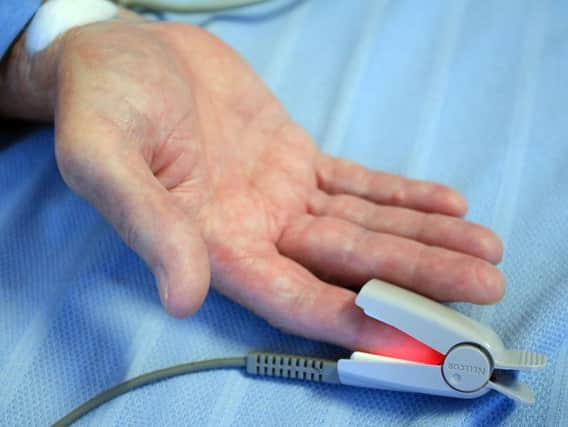Revealed: Yorkshire NHS trusts' rising problem with discharging elderly patients in good time


Latest figures reveal Sheffield Teaching Hospitals NHS Trust saw a 138 per cent increase in delays facing patients fit to leave hospital in the 12 months to March.
Numbers of wasted bed days across the year rose above 48,000 – more than any other NHS trust in England.
Advertisement
Hide AdAdvertisement
Hide AdScores of patients needing help at home discharged themselves rather than wait, as 10 per cent of 1,700 beds in the city’s hospitals were at times occupied by people fit to leave.
The Yorkshire Post can reveal serious problems discharging increasing numbers of sick elderly intensified across the country in 2016-17.
Delays were up by a quarter both in the region and in England, as numbers of wasted bed days rose to 2.25 million nationally, according to analysis of official figures.
Patients in North Yorkshire faced a 79 per cent increase in delays and people in the East Riding and Hull saw a rise of 60 per cent.
Advertisement
Hide AdAdvertisement
Hide AdThe problems are being linked in part to council budget cuts which led to record numbers of delays in March for patients waiting for care packages in England.
Bed shortages caused by the delays have worsened pressures on A&E units trying to admit patients and led to more on-the-day cancellations of operations, including more than 400 in Sheffield alone last year.
There are concerns the position could deteriorate further despite an extra £2 billion for council social care over three years announced in the Budget as financial and demand pressures intensify.
Last night Labour's Shadow Health Secretary Jon Ashworth pledged extra spending on NHS and social care to tackle worsening delays in “overcrowded and underfunded hospitals”.
Advertisement
Hide AdAdvertisement
Hide Ad"Government cuts to social care services over the past seven years have meant people are increasingly stuck in hospital even when they’re well enough to leave,” he said.
“We will introduce a new target that from 2019 most people who are well enough to go home will leave hospital within one week.”
A Conservative spokesman said: “We know that in some places the number of patients delayed in hospital is too high – which is why in the last Budget, on the back of a strong economy, we allocated an extra £2bn extra to make sure people can be discharged more quickly.
“That extra investment in the NHS and social care will be put at risk if Jeremy Corbyn is elected because his nonsensical policies would crash the economy and mean less money for public services.”
Advertisement
Hide AdAdvertisement
Hide AdMargaret Willcox, president of the Association of Directors of Adult Social Services, said: “The fact that the number of delayed discharges attributable to social care has reached a record high is worrying and is symptomatic of the historic underfunding of social care which has put the sector in crisis.”
Extra cash was “welcome” but there was still a predicted £2.5bn funding gap by the decade’s end and a long-term solution was needed.
The crisis in Sheffield has been partly blamed on repeated breakdowns of services provided by the city council’s short-term intervention team to help people return home.
A third of jobs in the service were axed last summer under the council’s austerity programme and private care providers failed to provide extra capacity as officials had expected.
Advertisement
Hide AdAdvertisement
Hide AdNHS England figures show beds days wasted in the city’s hospitals while people waited for care packages rose nearly 10-fold to 21,000, with some waits of three weeks.
Nearly two-thirds of all delays were blamed on NHS issues, 21 per cent on failings in council-run social care and 16 per cent on both.
Kirsten Major, deputy chief executive at the Sheffield NHS trust, said there had been a big rise in demand for emergency care in the last 12 months and in waits for people to return home.
“That meant they remained in hospital and we could not use that bed for other patients,” she said.
Advertisement
Hide AdAdvertisement
Hide Ad“However, we have been working closely with Sheffield City Council and other providers to ensure the situation is addressed and currently we are seeing significant improvements.”
Phil Holmes, the council’s director of adult services, admitted it has been a “difficult year” but in most cases delays had now been eliminated.
He added: “We’ve put extra funding into home care and are working with a larger number of care providers to ensure people have the help they need when they need it.”